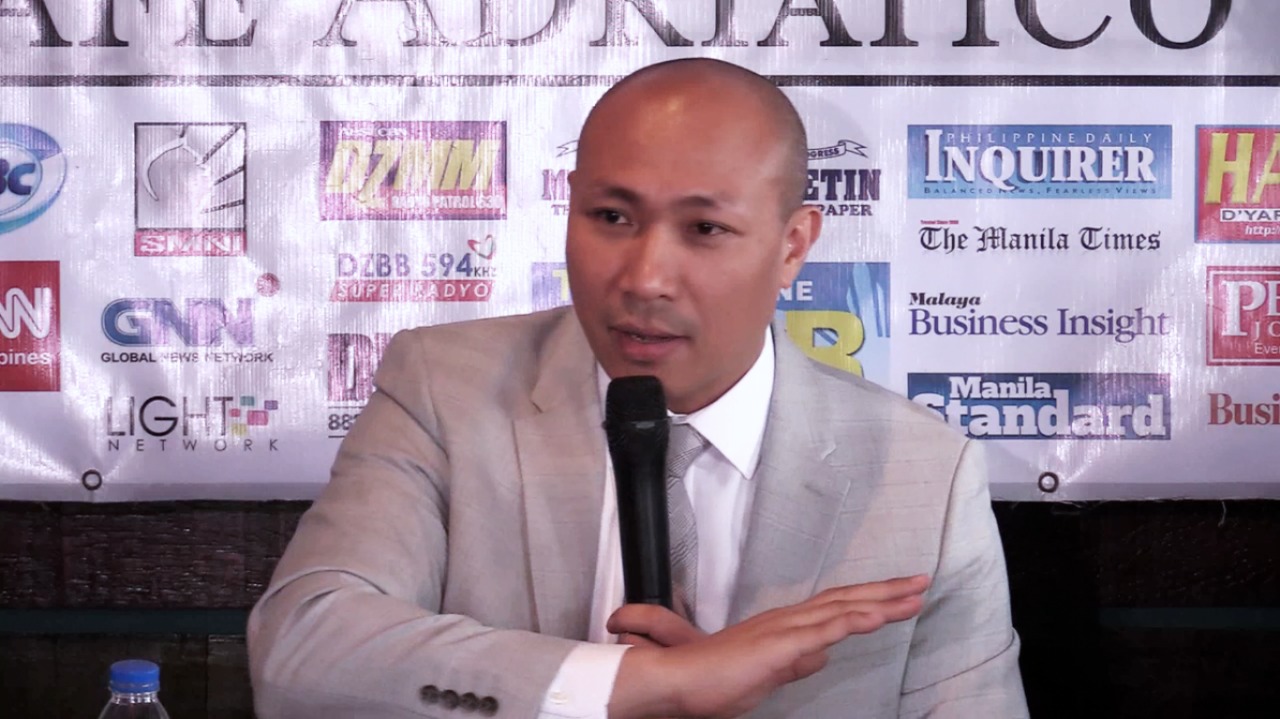Alejano: ‘SC bowed down to whims of Executive branch’

Magdalo party Rep. and Otso Diretso senatorial candidate Gary Alejano. INQUIRER.net file photo / Ryan Leagogo
MANILA, Philippines — The Supreme Court “disregarded” the Constitution and “bowed down to the whims of the Executive branch” when it affirmed the legality of the third extension of martial law in Mindanao, Magdalo Rep. Gary Alejano said Tuesday.
“The 1987 Constitution is clear that there should be sufficient factual bases for martial law to be declared. However, it is evident that no rebellion or actual threat is existing now in Mindanao,” the Otso Diretso opposition senatorial candidate said in a statement.
Akbayan party-list Rep. Tom Villarin echoed Alejano’s concerns.
“The Court’s decision is not made on the basis of actual, admissible evidence but rather on speculation or conjecture that invasion or rebellion exists in Mindanao,” Villarin pointed out, accusing the high court of “abandoning the rational basis test—a test that requires judges to ignore the government’s true ends and accept factual representations.”
The SC, he added, “is helping invent justifications for the government’s conduct in having another ‘endless martial law extension’.”
Voting 9-4, the SC upheld Congress’ move to extend martial law in Mindanao for the third time until December 31, 2019, thus, junking the four petitions that challenged the constitutionality of the extension.
READ: Supreme Court OKs 3rd martial law extension in Mindanao
‘Nationwide martial law’
Bayan Muna chairman Neri Colmenares, meanwhile, said the SC’s decision to affirm the legality of martial law extension in Mindanao for the third time would “pave the way” for a nationwide martial law “even if there is no threat to public safety.”
“For martial law, the Constitution requires actual invasion or rebellion, if the public safety requires it. Thus, even if rebellion exists, if public safety is not threatened, the president can use his calling out powers for the military to quell rebellion, not martial law,” the Makabayan senatorial bet explained.
ACT Teachers party-list Rep. Antonio Tinio, for his part, said the “never-ending declaration of Martial law in Mindanao has been used to terrorize and harass innocent civilians, human rights defenders, humanitarian workers, Lumad communities, environmental advocates and activists.”
ACT Teachers party-list Rep. France Castro, meanwhile, said the only terrorism still lurking in Mindanao is “state terrorism brought by elements of the Armed Forces of the Philippines, paramilitary forces and the Philippine National Police who drive Lumad children out of their schools, illegally detain people without warrants of arrest, charge them with trumped-up cases and tag them as terrorists.”
On December 12, 2018, Congress granted President Rodrigo Duterte’s request to extend martial law in Mindanao for another year despite protests by human rights groups and Filipinos from Mindanao.
READ: Congress okays 3rd martial law extension in Mindanao
Duterte first declared martial law in Mindanao on May 23, 2017, after the Islamic State-inspired Maute group attacked Marawi City. He asked Congress for an extension until end-December 2017 even after he declared Marawi City “liberated from terrorist influence” on October 17, 2017.
Later on, Duterte requested again for another extension of martial law in Mindanao until end-December 2018 despite the government’s declaration of an end to fierce urban fighting in the war-torn area.
Article VII Section 18 of the Constitution states that if there is “invasion or rebellion, when the public safety requires it,” the President may suspend the privilege of the writ of habeas corpus or place the Philippines or any part of it under martial law for not more than 60 days. But Congress may choose to extend or revoke it. /kga














